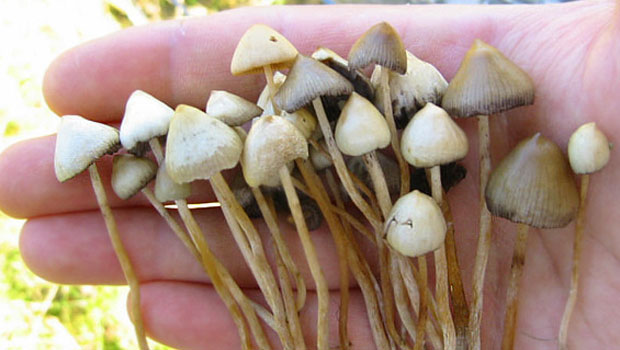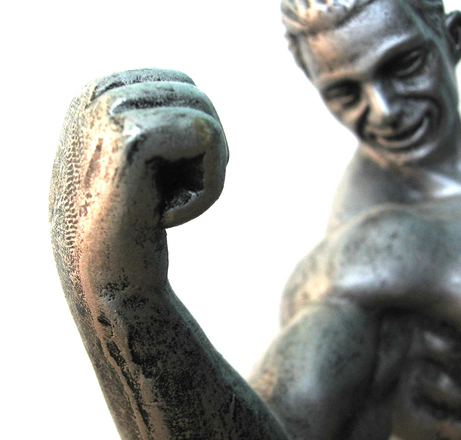When your friend is using cocaine
Posted on May 23, 2022
Note to the reader: This section begins with a letter from a friend who is concerned about abusing cocaine and is looking for help. In writing my response, I am trying to assist the individual and, at the same time, provide information for a more general audience seeking information about addiction. --Floyd Else, Webmaster.
Floyd:
 I saw the other emails about Cocaine abuse and given how clear and helpful the responses were, I thought I might direct my questions your way. I have a lot of friends at college who take cocaine regularly, most of whom I'm not really that close to, because they stick to each other and won't let a non-user in.
I saw the other emails about Cocaine abuse and given how clear and helpful the responses were, I thought I might direct my questions your way. I have a lot of friends at college who take cocaine regularly, most of whom I'm not really that close to, because they stick to each other and won't let a non-user in.
I have taken coke a few times, but never regularly and always small doses. The reason for my writing is that one of this group is a very close friend, and I'm worried about her. What worries me is if using cocaine is especially risky for my friend because she and I both get migraines, with visual aura, which I know are caused by the dilation and constriction of blood vessels in the brain, and I think that's what cocaine affects.
Does cocaine put her at risk of stroke because she gets migraines? I've tried to talk to her about it, but she laughs it off. She's really smart and I think having some hard science to back me up might help - can you help? Thank you.
Lysa ***
*** Not her real name.
Dear Lysa:
Thanks for your letter. It makes me extremely sad to hear about you and your friend. Yes, cocaine can cause serious health problems and death.
Substance abuse addiction is a disease of denial. People such as your friend will deny that cocaine is a problem. They will deny that their cocaine use is hurting them. They will deny that their cocaine use is hurting others. They will deny that they can't stop using cocaine. (They may even stop for a day to prove that they can quit.) And then they resume their use.
Some go down the tubes quickly. Some go down the tubes more slowly. Usually the smokers go much more quickly than those who snort, but the addiction always progresses and gets worse and worse.
Part of it is a "self-talk" problem. First addicts tell themselves that it is harmless and they can quit any time they want. When they loose their jobs addicts think they are using cocaine because of the stress of being unemployed. When they drop out of college they think they are using cocaine to handle their family's disappointment. By the time cocaine addicts have gone deeply into debt, sold off all their assets, and start stealing from family or shoplifting to raise money to buy drugs, they are experts at making up excuses and rationalizing their drug using behavior.
After they have gone to jail or prison and get sober for a period of time, they will swear that they are never going to use again. Once out from behind bars, they drop by to see their old friends who will offer them some drugs to celebrate their release. And they will think to themselves, "Just once won't hurt." Right then or in a couple days, weeks, or months they will think to themselves, "Well, I tried it once before and was able to handle it. It will be all right if I just use it once again." And they will be back in the rat race.
Listening to your story about your friend, I am most concerned about YOU. You have already used cocaine several times. How many more times can you use before you get hooked? How long before your friend encourages you to use again? "Hey, you can't study all the time! You need to take a break. Why don't you come with my friends and let loose for the evening. We always have lots of fun!"
Knowing the addicts I have known and their repeated relapses and the pain that they and their loved ones have experienced, my first response is very simple.
You can not reason her out of addiction. Medical information that scares you will not turn her head. Don't try to fix her. Save yourself. Find a new friend.
The only hope is to contact her family and let them know she is into drugs. Recommend that they contact a "drug intervention specialist" to advise them and to assess her and to arrange for her to go to treatment, if appropriate. Of course the family probably won't believe how serious it is. And she will be angry at you for ratting her out to her family.
If you don't do either of these two things and think you can continue to be her friend, please search for the closest meeting of Al-Anon. This is a non-profit, anonymous organization for the family and friends of alcoholics and addicts. Although originally formed around alcoholism, drinking and drug use have now become so closely related that few have a problem with just one substance--and giving up one substance usually means that they will begin to use more of the other until it becomes a serious problem in their lives.
I know this isn't what you wanted to hear. And I know that you probably won't believe me. So I urge you to read a book called "Co-Dependent No More," or one of the many other books around on the subject of codependence. She is the addict. You are the codependent.
Many of the addicts I have known are intelligent, caring, charming, likeable people when they are straight and sober. Unfortunately, some are "too smart" to ever stay clean and sober. They often suffer from something the addiction field calls "terminal uniqueness," which is to say they believe that they are different than everyone else who gets involved with drugs and alcohol. And they believe this until the day they die. They die still believing they can handle it--they're different.
I recommend that you attend some Al-Anon meetings. You can go and just listen. After a while you may feel like sharing. But listen to the true stories of other family members and friends and find out what they experienced and learned. Use this as a short-cut to find out what works and what doesn't. Learn when you should help and when you shouldn't. Find out what you can do that actually helps the addicted person and what common behaviors will harm them.
SEE: Al-Anon Meetings Information
I understand that you mean well. You were wise enough to write for advice. Please be wise enough to listen. It would be great to save your friend from the future pain of addiction, but most of all, I want to save yourself.
It is so painful to watch people, over and over committing the same mistakes as others before them. Please don't try to be a "terminally unique" friend. Don't try to fix her. Educate yourself first--it's a matter of self defense!
Best wishes to you and your friend.
Floyd Else, MA, LMHC, NCC, MAC
Webmaster
How does cocaine kill?
Researchers have found that compared to the general population, those with recent cocaine use, have death rates between 13 and 58 times higher. Cocaine triggers the release of the hormone norepinephrine, which causes an increased heart rate and blood pressure, and narrowing blood vessels. Cocaine is known for its ability to significantly alter heart function in both experienced and inexperienced users. Effects of cocaine on the cardiovascular system could explain the higher risk of sudden cardiac arrest death among cocaine users. Cocaine kills in a variety of ways, most commonly heart attack, overheating (hyperthermia), and brain damage.
Other stimulants such as methamphetamine also affect the heart in a similar manner.
"A Cognitive-Behavioral Approach: Treating Cocaine Addiction," a report by the National Institute on Drug Abuse.
Cocaine is in a class of drugs called stimulants: more information.
If you or a family member has a problem with a substance use disorder, please consider calling the Washington Recovery Help Line: 1-866-789-1511 (24/7). This an anonymous and confidential help line that provides crisis intervention and referral services for individuals in Washington State. Professionally trained volunteers and staff are available to provide emotional support 24-hours a day, seven days a week. In addition, they can suggest local treatment resources for substance use, problem gambling, and mental health, as well as to other community services
SEE ALSO:
More How Drugs and Alcohol Affect the Brain and Body
Sexual Bias Articles
Race Relations Articles
Mental Health Articles
WA. Counselor Directory: find a therapist near you
How helpful is this web page to you?
(and how can we can improve this page for you?)
not helpful
very helpful
Other Articles
The Brain's Response to Hallucinogens
Hallucinogens --LSD (acid), MDMA (an amphetamine called ecstasy), PCP (often called angel dust), and Diviners Mint. Adapted from: Mind Over Matter Hallucinogens Series National Institute on D... read more
The Brain's Response to Methamphetamine
Adapted from: Mind Over Matter Methamphetamine Series National Institute on Drug Abuse · National Institutes of Health “Speed”, “meth”, “chalk”, &ld... read more
The Brain's Response to Steroids
Steroids --anabolic steroid abuse has been associated with a wide range of adverse side effects ranging from some that are physically unattractive, such as acne and breast development in men, to others that... read more



